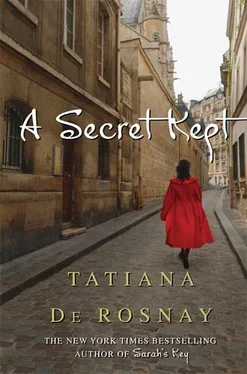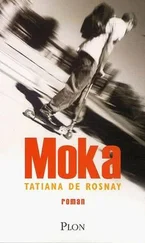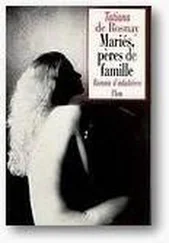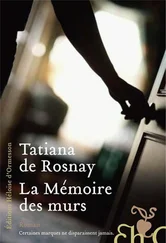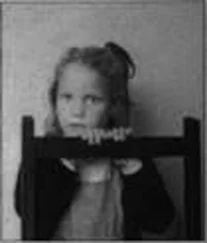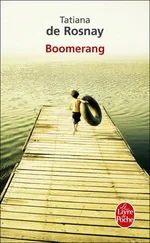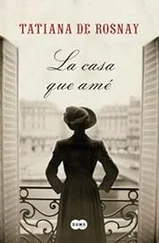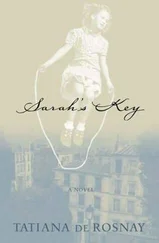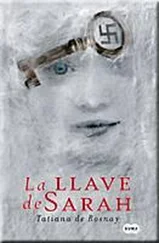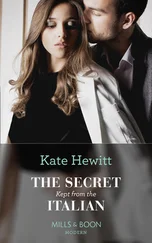“Can you explain what happened?” I ask him.
“Your son was arrested with other teenagers.”
“Why?”
His deadpan manner irritates me. He seems to enjoy taking his time, watching every muscle of my face.
“They ransacked an apartment.”
“I don’t understand.”
“Your son gate-crashed a party tonight. With a couple of his friends. The party was given by a young girl called Émilie Jousselin. She lives on the rue du Faubourg Saint-Martin, around the corner from here. Your son had not been invited. And once your son and his friends got there, they called more friends. Easy, with mobile phones. So a whole load of other friends turned up. Friends of friends. And so on and so forth. A hundred people at least. And everybody got drunk. They all had liquor with them.”
“What did they do?” I ask, trying to keep my voice steady.
“The place was trashed. Somebody sprayed graffiti on the walls, broke china, cut up the parents’ clothes. Stuff like that.”
I gulp.
“I know it’s a shock, sir. Believe it or not, it happens regularly. We have to deal with this kind of thing at least once a month. Nowadays parents leave for the weekend and don’t even know their kids are planning to have a party. This young girl hadn’t told her parents. She is fifteen. She just told them she was having a couple of girlfriends over.”
“Is she from my son’s school?”
“No. But she advertised her party on her Facebook page. And that’s how it all started.”
“How do you know my son was part of this?”
“We were called by neighbors who realized the party was getting out of hand. When my men got there, they arrested as many youths as they could. Most of them got away. But your son was very drunk. He could hardly move.”
I look around for a chair to sit on. There isn’t one. I glance down at my shoes. Regular leather loafers. My everyday shoes. My feet in my everyday shoes. Yet today my feet have carried me into the hospital morgue to view Pauline’s dead body, then to Mélanie’s apartment to hear the truth about what had caused the accident, then here, now, in the middle of the night, in a police station, about to confront my drunken son.
“Would you like a glass of water?” offers Commissaire Bruno.
So he is human, after all. I accept and watch his thin form walk away. He is back almost immediately, hands me a glass.
“Your son is coming now,” he says.
A couple of minutes later two policemen appear, shouldering Arno, who shuffles along with the unsure gait of a drunkard. His face is pale, his eyes bloodshot. He doesn’t look at me. I feel shame and anger shoot through me. How would Astrid react? What would she say to him now? Would she scold him? Soothe him? Shake him?
I sign a couple of papers. Arno can hardly stand up. He reeks of alcohol, but he is sober enough to know what is going on. Commissaire Bruno tells me I will probably need to find a lawyer, in case the young girl’s parents press charges, which they probably will do. We leave the police station. I don’t want to help my son. I let him shamble along behind me to the car. I have not said a single word to him. I don’t even want to touch him. He repels me. For the first time in my life I am disgusted by my own flesh and blood. I watch him as he ineptly gets into the car. For a split second he looks so young, so frail, that I experience fleeting pity. But the revulsion takes over again. He fumbles with his seat belt, cannot buckle it. I do not move. I wait till he finally manages to secure it. He is breathing loudly through his mouth, the way he did when he was a kid. When he was a nice little boy. The little boy I carried around on my shoulders, who used to look up at me the way Lucas still does now. Not the lanky, supercilious teenager with the frosty sneer. I marvel ironically at what hormones do, how they transform our children overnight into beings we no longer recognize.
At nearly four o’clock in the morning, the streets are empty, Christmas lights glowing merrily in the cold darkness with nobody to see them. I still have not spoken to my son. What would my father have done in this situation? I cannot help smiling sardonically. Beaten me to a pulp? He did hit me, I recall. Stinging clouts across my face. Not often; I was a subdued teenager, not the defiant, uncouth sort sitting to my right.
The silence stretches between us. Does he find it uncomfortable? Does he have any idea of what happened tonight? Is he afraid of me? Of what I will say to him? The inevitable lecture? The consequences? No pocket money, no more going out, better grades, better behavior, writing to the parents to say sorry…
Slouched toward the car door, he appears to be falling asleep. When we arrive at rue Froidevaux, I give him a dig in the ribs that jolts him awake. He makes his hesitant, vacillating way up the stairs. I don’t wait for him. Mélanie has left the keys under the mat, and as I open the door, I see her curled up on the sofa, reading. She gets up, hugs me, and we both observe Arno as he enters, swaying unsteadily. He takes in his aunt, and a lopsided grin broadens his face. But nobody smiles back at him.
“Aw, come on, you guys, give me a break,” he whines.
My hand reaches back, and I slap him across the face with all my might. It happens fast, yet oddly I can see my gesture in slow motion. Arno gasps. The traces of my fingers are outlined on his cheek, bright red. I have still not uttered a single word.
He stares at me, outraged. I stare back. Yes, says the little voice, that’s right, you’re the daddy. You’re the father, and you are setting down the law, your law, whether this little asshole who happens to be your son likes it or not.
My eyes bore into his like gimlets. I have never looked at my son this way before. At last he glances down.
“Come on, young man,” says Mélanie briskly, grabbing his arm. “You are heading straight to the shower and then to bed.”
She leads him out of the entrance, away from me. My heart is beating painfully. I am out of breath, although I have hardly moved. I sit down slowly. I hear the sound of the shower running, and Mélanie comes back. She sits next to me and lays her head against my shoulder.
“I don’t think I’ve ever seen you so angry,” she whispers. “You were intimidating.”
“How’s Lucas?”
“In the Land of Nod.”
“Thank you,” I murmur.
We sit there together. Her familiar, sisterly smell. Lavender and spice.
“Astrid has missed out on so much,” she remarks. “Pauline’s death. Arno, tonight. Our mother.”
Strangely, it is not Astrid who comes to my mind right now. It is Angèle. It is her presence that I crave, her warm, supple body, her sarcastic laugh, her surprising tenderness.
“When you hit Arno, you looked so much like our father,” Mélanie says softly. “The way he used to get angry with us.”
“This is the first time I ever hit Arno.”
“Do you feel bad about it?”
I sigh. “I don’t know. All I feel is anger. You’re right. I’ve never felt such anger.”
I don’t admit to Melanie that I am angry with myself because I feel Arno’s behavior is somehow my fault. Why have I been such a limp, transparent father? Because I never put my foot down, never spelled out the rules the way my own father did? Because when Astrid left me, the one thing that scared me was this: that being bossy with my children would make them love me less?
“Stop thinking, Tonio,” comes Melanie’s comforting voice. “Go to bed. Get some rest.”
I’m not even sure I feel sleepy anymore. Mélanie goes to Margaux’s room. I stay up for a little while longer, looking at the old black-and-white photo album with all the Noirmoutier photos. I look at the photographs of my mother, and it is a stranger I see. I doze off into an uneasy slumber.
Читать дальше
